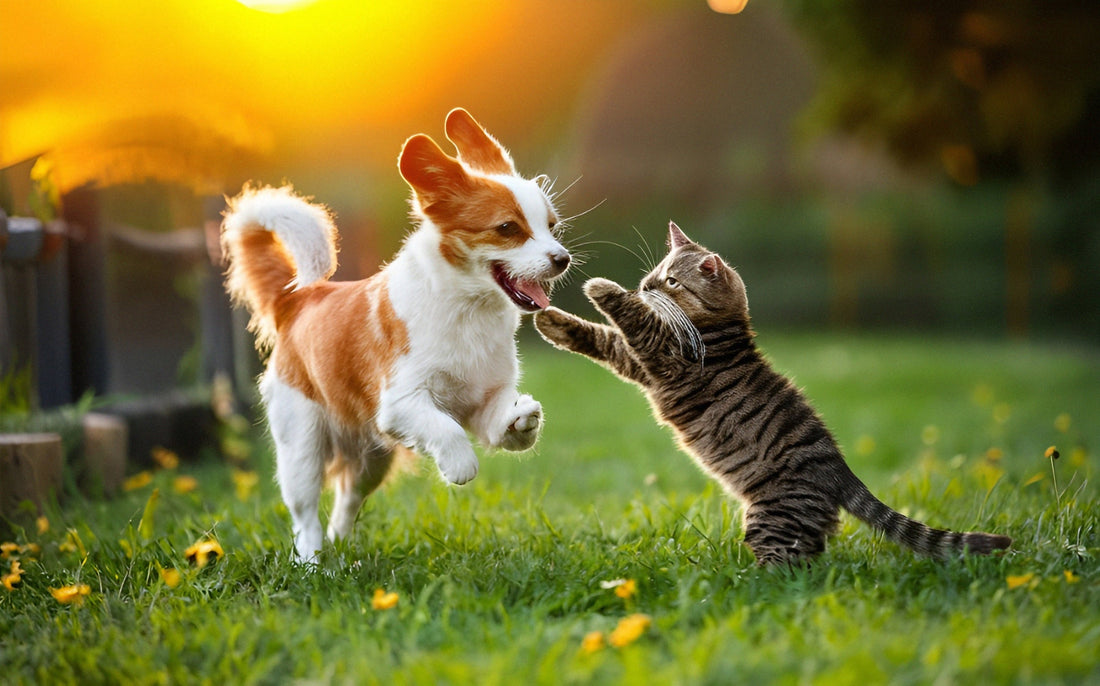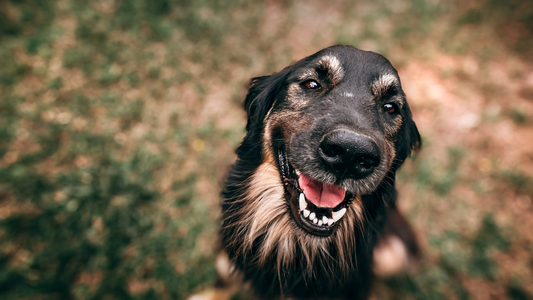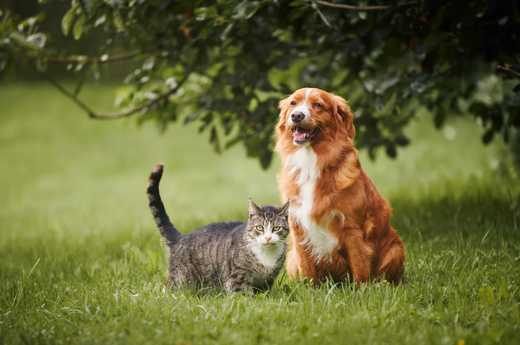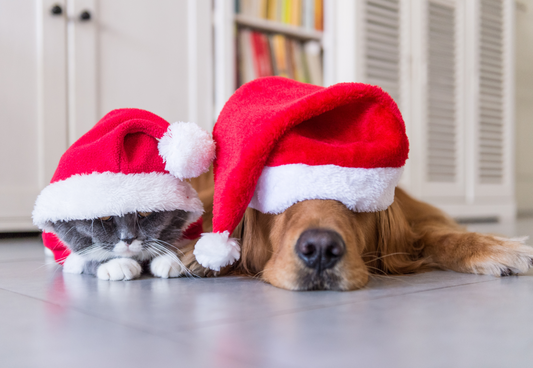Bringing a new puppy into your home? You’re probably shaking with excitement (we would be too!) Puppies have a lot of energy, and playtime can sometimes get a little wild. It's normal for them to nip, bite, and jump around. But how do you know if it's just playful behaviour or something more serious? Early intervention ensures your puppy grows into a well-behaved and social dog. We’re here to provide effective training tips to handle moments when your pup gets aggressive.
Puppy Aggression: The Causes & Signs to Watch for
Puppyhood is full of playful nips, excited jumps, and at times a small growl here and there. But sometimes, it can cross the line. It’s important to know when these are normal puppy habits and when to step in before developing into a problem.
If your puppy is a little bitey, there might be a few reasons. Firstly, they might be grumpy if they’re feeling scared or threatened, leading to nips or growls. Just like a child, puppies might think, ‘What’s mine is mine!’ showing possessiveness over their space or belongings. You might also experience some bites during playtime as they can get carried away, not realising they’re hurting you. Other causes might be sore gums from teething, making them feel on edge.
To make sure you’re addressing this before it grows into a habit, watch out for:
- Growly puppy: A little growl is normal, but if it sounds serious or gets too snarly, it could signal that they’re uncomfortable.
- Snap, snap: Gentle nipping is part of puppy play, but persistent biting can indicate aggression. If it starts to hurt, it’s time to say, ‘Ouch!’
- Stiff body language: A tense body might mean your pup is feeling overwhelmed. This usually comes with bared teeth, a clear sign of discomfort or aggression.
Tips for Teaching Your Puppy Good Manners
Puppyhood is a time for learning and growing, including learning how to behave around other pups and people. Let’s help your little one become a social superstar!
Puppy Social Club
Socialising your puppy is one of the most effective ways to prevent aggressive behaviour. Introduce your puppy to different people, animals, and environments in a controlled and positive way.
Puppy classes can be a fun way to socialise your pup in a structured setting while learning basic commands. Playdates are also amazing, especially with other well-behaved dogs who take on a senior role to teach your puppy proper social behaviour.
Positive Reinforcement
Ever heard about Pavlov’s theory? Well, it’s based on positive reinforcement. Rewarding good behaviour encourages good behaviour and reduces aggression. When your puppy is being a good boy or girl, shower them with praises and treats. This helps them understand that being polite, calm, and friendly pays off. The Healthy Pet Co. carries a range of healthy treats that your pups will love in pawsitive moments.
On the other end, you want to ignore bad behaviour. Puppies often take every form of attention, even ones where you’re scolding them, as a good sign. So, avoid reacting to aggressive habits to discourage them.
Consistent Training
Consistency is your best friend here. Creating clear rules and boundaries from the start is more helpful than you think. Teach your puppy basic commands such as ‘sit,’ ‘stay,’ and ‘leave it’ to help manage their behaviour. Proper leash training can also prevent aggressive outbursts during walks. As you go, keep practising those commands and setting clear boundaries. Your puppy will thank you later!
Stay Away From What Sets Them Off
We want to make sure your pup feels safe and happy. One way to do that is avoiding things that might upset them. Instead, create a quiet space where your puppy can relax and feel secure. Even as you’re introducing new people or animals, take it slow and steady so they’re always comfortable.
Reach Out to Experts
If your puppy’s aggressive behaviour persists despite your best efforts, consult your vet. This is so they can rule out any medical issues that might cause them to be irritable. You can also work with a certified dog trainer to figure out what works best for your furry friend.
Moments to Manage Bad Habits
Puppies might bare their teeth during playtime. To guide them towards healthy playing, redirect their energy. If your pup gets too rough during play, try giving them a toy to chew on instead. Timeouts are also good to teach them to stay calm.
If they’re growling around their food bowl, it’s time for some mealtime manners. Feed your puppy by hand to build trust and prevent food guarding. If your home is constantly bustling, you can start them off with gentle pets as they eat at a young age. This teaches them that no one is going to take their food away, letting them get used to having people around while they eat.
Do they get snappy around other pets? Gradually desensitise them by introducing your puppy to other friendly dogs in a supervised environment to help them learn social skills. Separate feeding areas for a multi-pet household can also help prevent competition and aggression.
Raising a Happy, Healthy & Well-Adjusted Pup
Watching your puppy grow and learn is one of life’s greatest joys! By understanding their behaviour and providing the right guidance, you set them up for a fur-tastic life. At The Healthy Pet Co., we’re here to support you and your furry friend every step of the way with expert guides and high-quality products. Together, we can help your lovely pup grow into a well-behaved and cherished member of your family, ready to be the golden child front and centre in family portraits!




